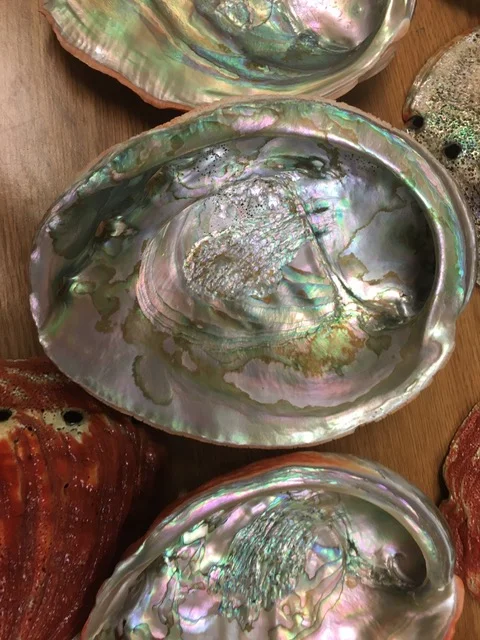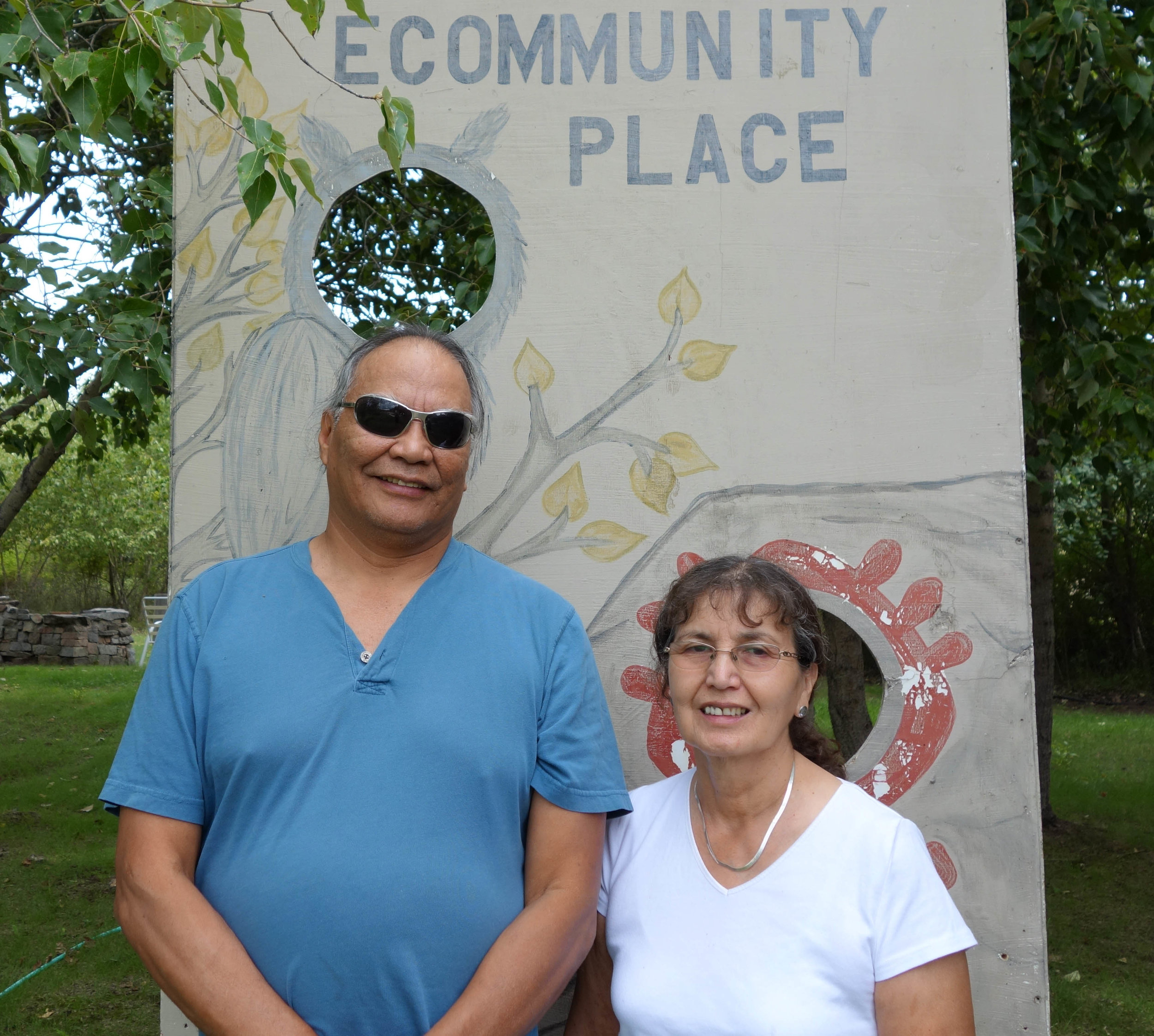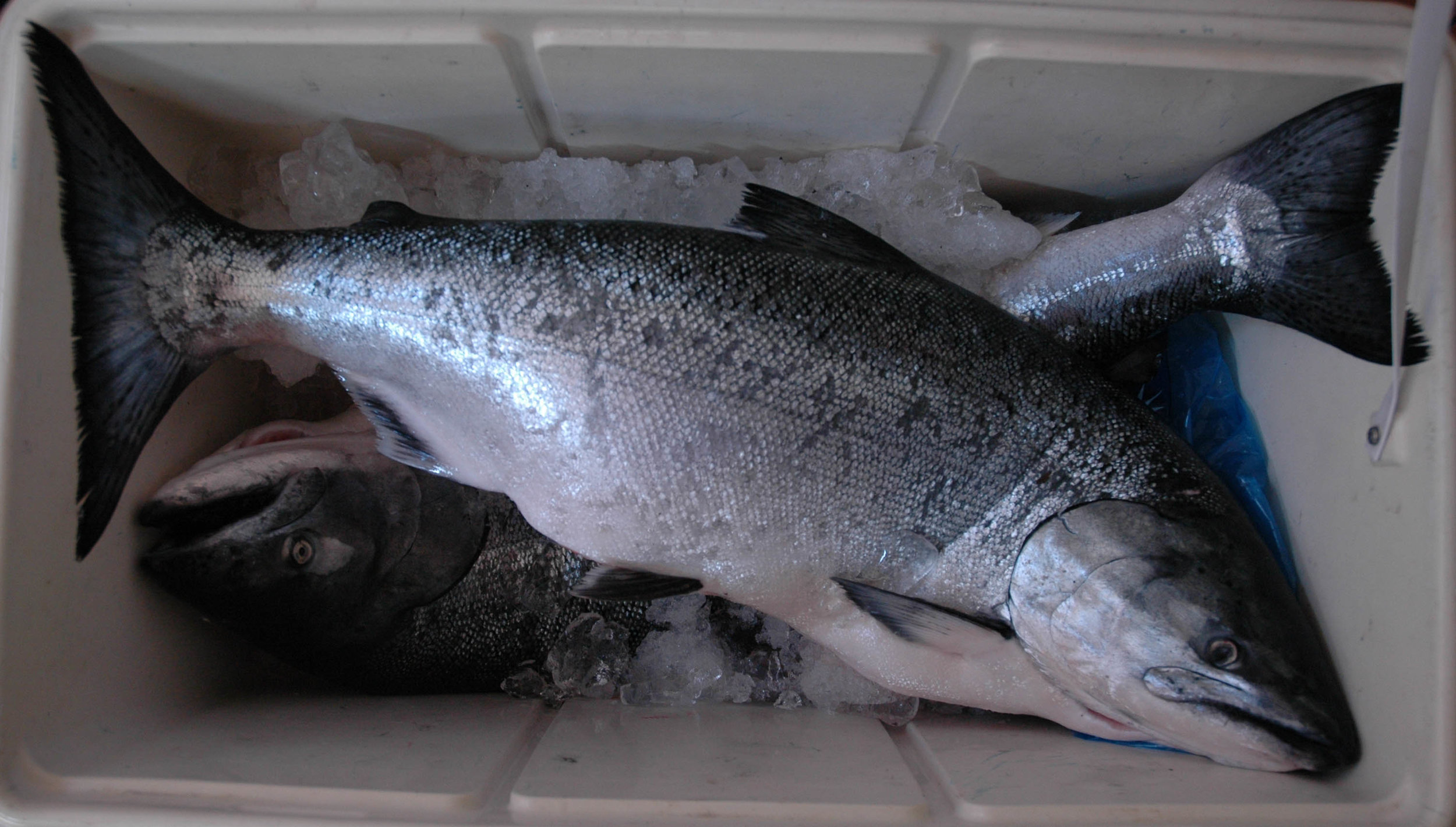Speakers: Jacquelyn Ross, Marlowe Sam, Jeannette Armstrong, and Winona LaDuke | Air Date: December 27, 2018 | Run Time: 46mins | The Native Seed Pod: Season 1
A Feast of Food Stories with Abalone, Salmon and Wild Rice
For this final episode of season one of the Native Seed Pod we featured the voices of four strong Native American food sovereignty leaders talking about critical food relatives: Jacquelyn Ross (Coast Miwok/Jenner Pomo) on Abalone, Marlowe Sam (Wenatchee) and Jeannette Armstrong (Okanagan) on Salmon and Moose, and Winona LaDuke (Anishinaabe) on Wild Rice. We are fortunate to work with these folks through many Indigenous networks and interviewed them about their traditional foods 15 years ago as part of an extensive project with Slow Food USA and others to record “Traditional Foodways of Native America,” documenting oral histories of Native food revitalization http://www.nativeland.org/oral-histories-native-food
For this episode, we also brought in other special guests to talk about this project and these recordings—long-time TCC ally worker, Nicola Wagenberg, who was deeply involved with these oral histories 15 years ago, and local cultural artist and collaborator, Eddie Madril (Yaqui). Together with podcast co-producer Sara Moncada, the four of us have a conversation about the food stories shared in the four pre-recorded interviews. We explore the state of Native foods, including their traditional uses, changes over time, and the challenges to protect and access them today.
We hope you enjoy this multi-vocal conversation about the importance of Indigenous foods and foodways, from intertidal coastal gathering to moose hunting to wild rice gathering. This intertribal conversation demonstrates the diversity of Indigenous foodways and their critical cultural and nutritional significance to Native peoples, historically and for today.
Featuring pre-recorded interviews used with full permission.
Jacquelyn Ross
Our Guests
Jacquelyn Ross is Southern Pomo and Coast Miwok. She comes from a long line of fisherpeople, hunters, plant helpers, and farmers. Tending Native plants, seed gathering, and communal food processing are annual activities. She is urgently concerned with ocean changes and the declining health and habitat of key food species. She works in university outreach and admissions and is also a writer, artist, and jewelry maker.
Marlowe Sam and Jeannette Armstrong
Marlowe Sam is descended from the Salish-speaking Wenatchi people from Eastern Washington State, Sam now resides in Penticton, BC, Canada but remains a member of the Colville Confederated Tribes of Washington. He is one of two indigenous students to earn a Ph.D. from the University of British Columbia’s Okanagan campus, where he now teaches Indigenous Studies. Marlowe has been a tireless Indigenous rights activist for decades working nationally and internationally. For more information:
University of British Columbia - https://ourstories.ok.ubc.ca/stories/marlowe-sam/
Jeannette Armstrong is one of the founders of the En’owkin Centre in Penticton, BC, Canada, the institute of higher learning for the Syilx Okanagan people dedicated to the recovery of Syilx language and protection of Syilx cultural identity. She currently holds the Canada Research Chair in Okanagan Indigenous Knowledge and Philosophy at University of British Columbia Okanagan and writes and speaks widely. Jeannette is a Language Keeper and an award-winning writer (fiction, poetry) and cultural activist. For more information:
University of British Columbia - https://ourstories.ok.ubc.ca/stories/jeannette-armstrong/
“Human Relationship as Land Ethic,” presentation at Bioneers Conference - https://youtu.be/qwNoX3MNisE
“Grandmother Jeannette Armstrong: Syilx Okanagan Author, Educator, Artist & Activist” - https://youtu.be/BYEqF_enfuw
Winona LaDuke
Winona LaDuke is an internationally renowned activist working on issues of sustainable development, renewable energy, and food systems. She lives and works on the White Earth reservation in northern Minnesota, and is a two-time vice-presidential candidate with Ralph Nader for the Green Party. Winona is an environmentalist, political activist, writer, and speaker. She is the founder of Honor the Earth and the White Earth Land Recovery Project and its Native Harvest. For more information:
https://www.yesmagazine.org/issues/food-for-life/wild-rice-moon
https://www.slowfoodusa.org/ark-item/anishinaabeg-manoomin-wild-rice
Other Special Guests
Eddie Madril (Pascua Yaqui) teaches American Indian studies at San Francisco State University, College of Marin, and is the Artistic Director for Sewam American Indian Dance. He is currently the Co-Chair of the Board of Directors of World Arts West, producers of the acclaimed San Francisco Ethnic Dance Festival and previously served for 17 years on the Board of Directors for The Friendship House of American Indians, Inc. in San Francisco. He has worked nationally and internationally in Native American Arts and Education, has served on the advisory committee for Native programming at the de Young Museum of San Francisco, is a monthly host for KPFA Radio’s Bay Native Circle program and author of the new book The Dance of Caring.
Nícola Wagenberg is a clinical and cultural psychologist, artist, film producer and educator. Nícola has worked for over 20 years with diverse individuals, communities and organizations on personal and cultural transformation. Since 2005, Nícola has been working with TCC directing media projects, developing and implementing arts and cultural health programs and helping with the operations and development of the organization. She is the co-producer of “Traditional Foodways of Native America,” “The Salt Song Trail Living Documentary,” co-directed TCC’s Friendship House Urban Garden Project and is the director of the Native Youth Guardians of the Waters project.
Laurita Baldez was TCC's first Native Foodways Coordinator between 2002 and 2006. She was instrumental in helping with these Native food oral history recordings. We asked her to reflect on this work years later, now that she is a nurse practitioner and still a major advocate for Native health and wellness:
“We recorded these stories about 15 years ago. It’s hard to believe how much has happened since that time. Most significant perhaps is that I went back to school to become a nurse, and later, a nurse practitioner. As happy as I am with the path I choose, I’ve always felt that something was missing. The question I continue to ask myself is this: What does it take to restore someone back to health, in every sense of the word? My education has provided me with some answers, but my understanding remains incomplete. When listening to these recordings again, however, I begin think to myself, ‘Perhaps what I’m looking for has been with me all along. Perhaps it is encoded in these stories that we recorded all those years ago.’ ”
And a special thanks to the original project that led to these historic recordings, the Renewing America’s Food Traditions (RAFT) project of Slow Food USA. Special thanks to Gary Paul Nabhan, Makale Faber, Laurita Baldez, and all the funders and sponsors of the gatherings we attended and recorded at as part of this work to highlight Traditional Foodways of Native America.
CREDITS
Host/Writer/Director: Melissa K. Nelson
Producer: Sara Moncada
Co-producer: Mateo Hinojosa
Audio Editor and Engineer: Colin Farish
Assistants: Yvonne Martinez, Luke Reppe
Songs (in order of appearance):
“Interlude” by Colin Farish and Enrique Salmon
“Chasing Dreams” by Marcos Size
“Shadowland” by Colin Farish featuring SoVoSo
“Song for Justice” by Woableza LaBatte






